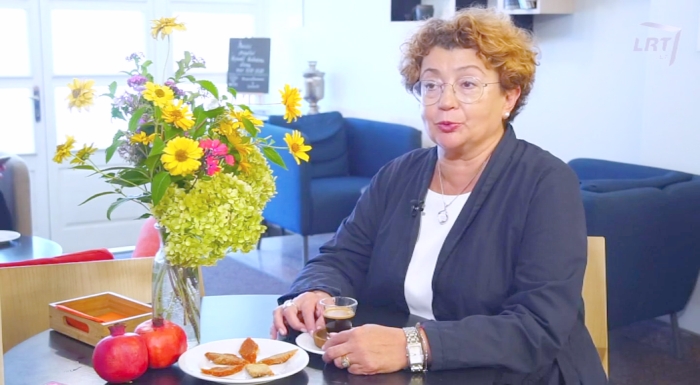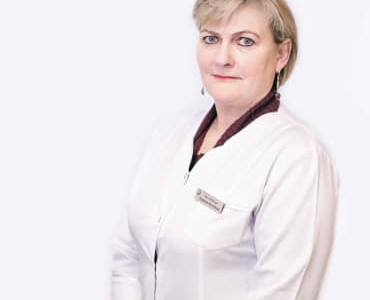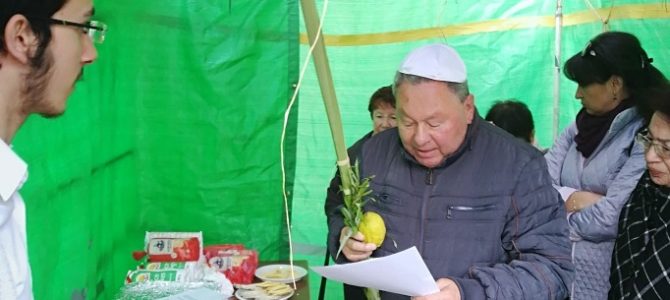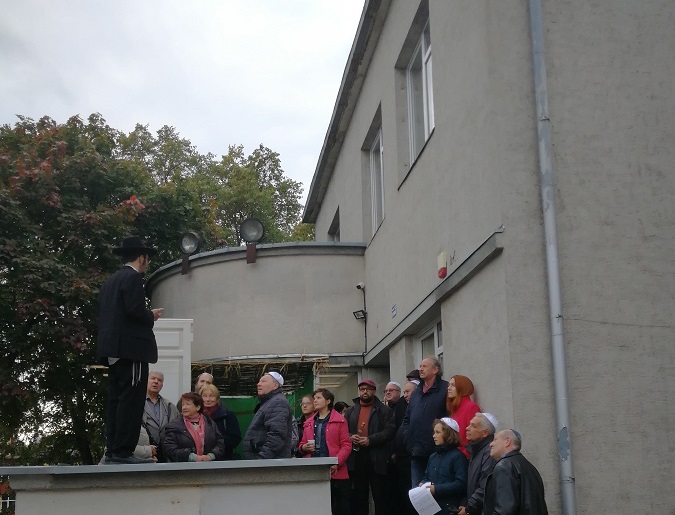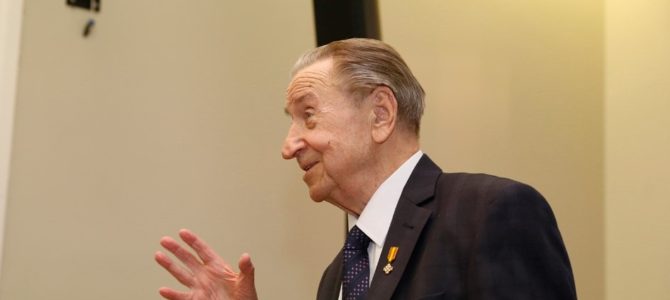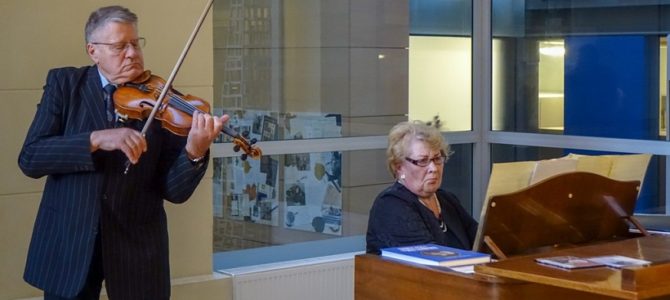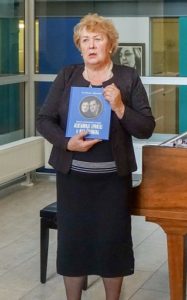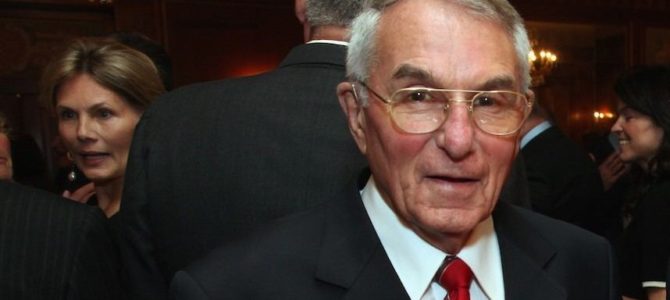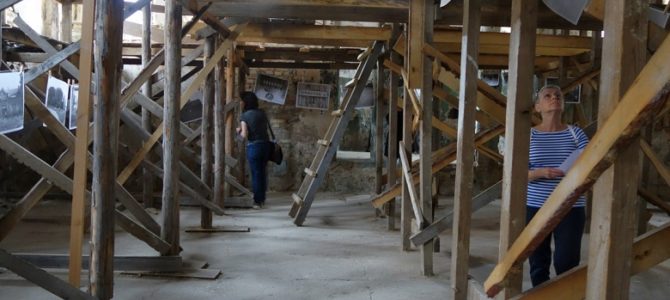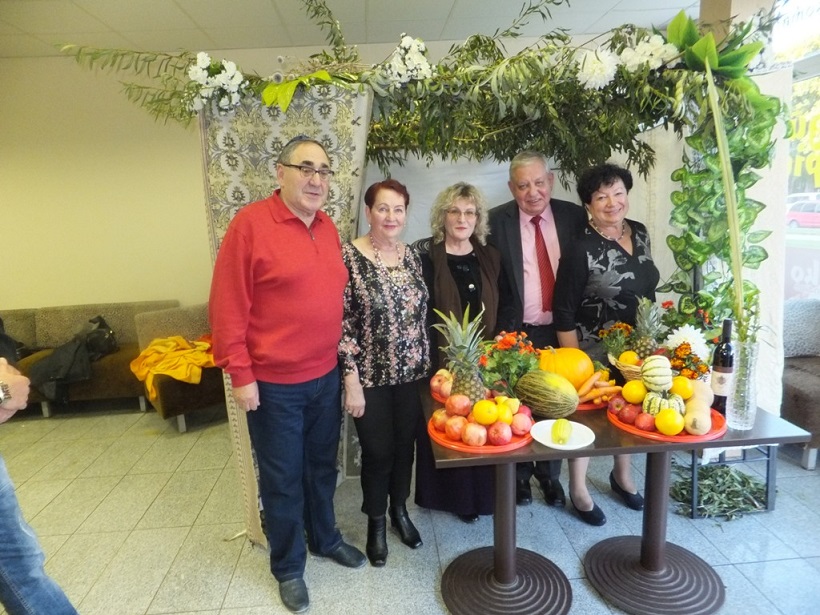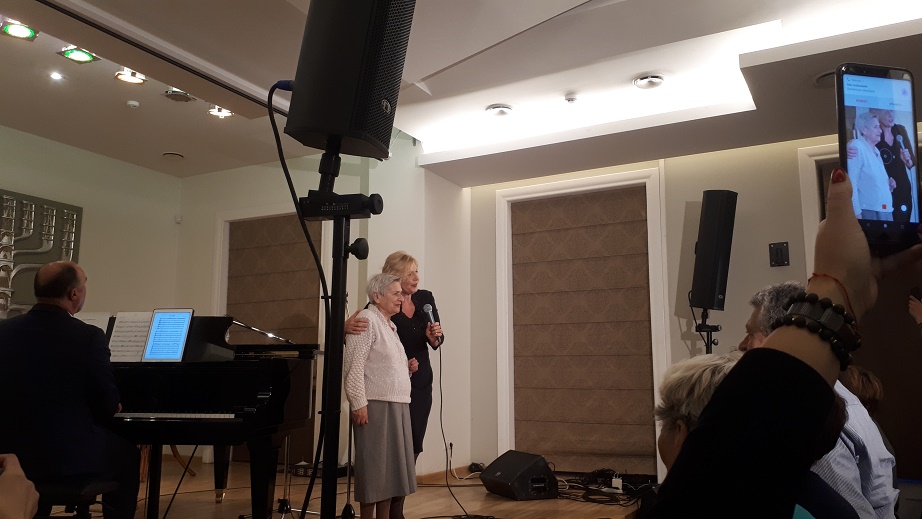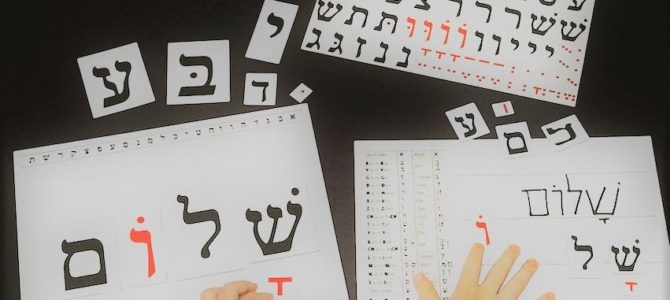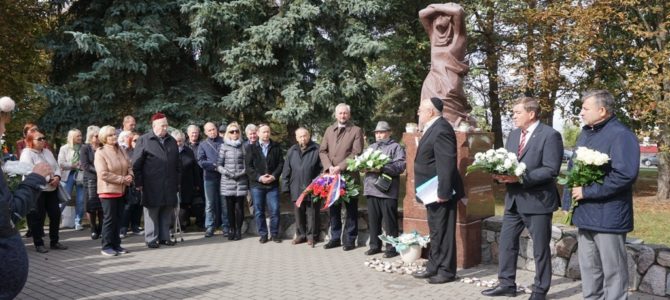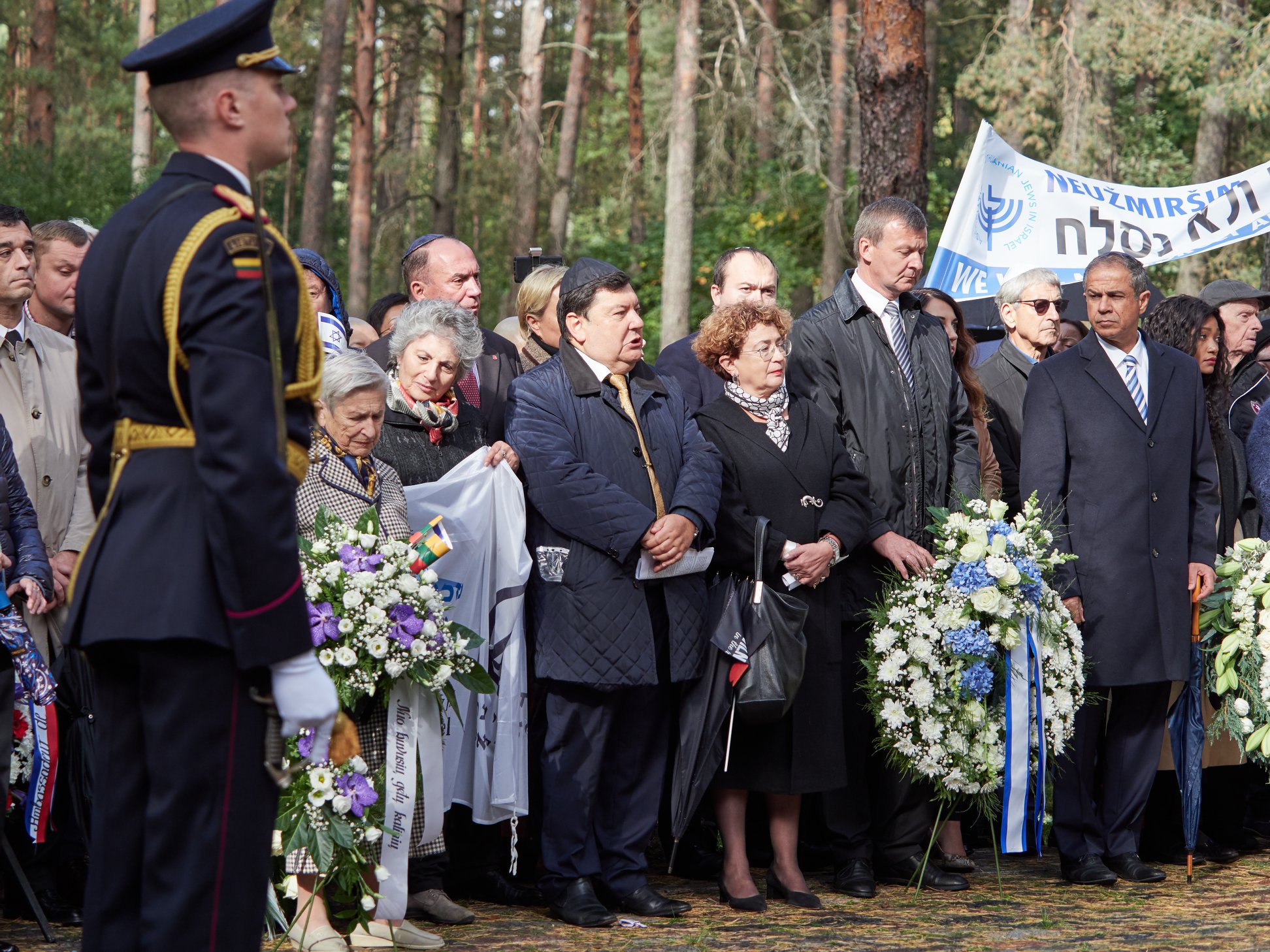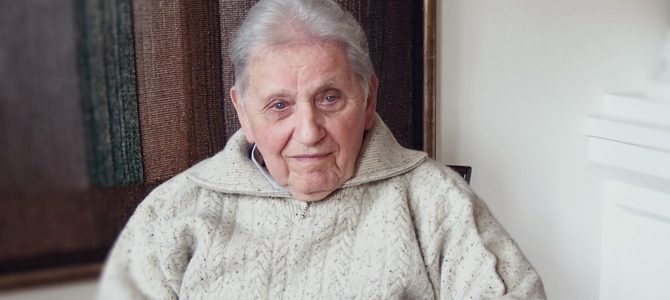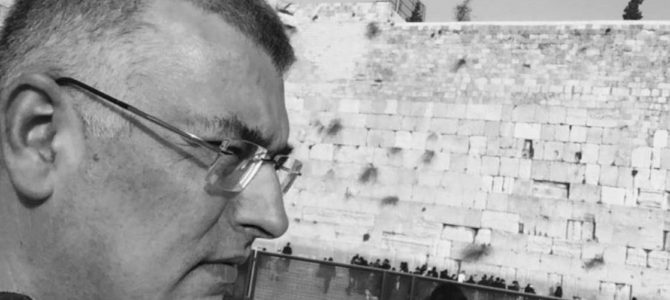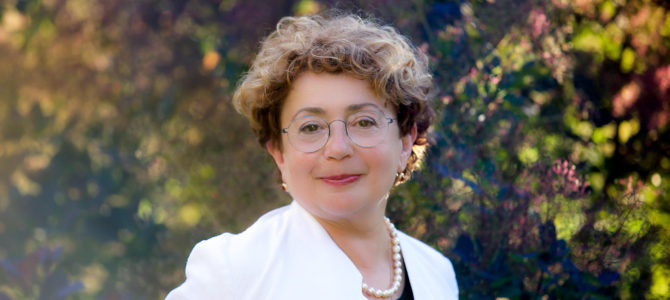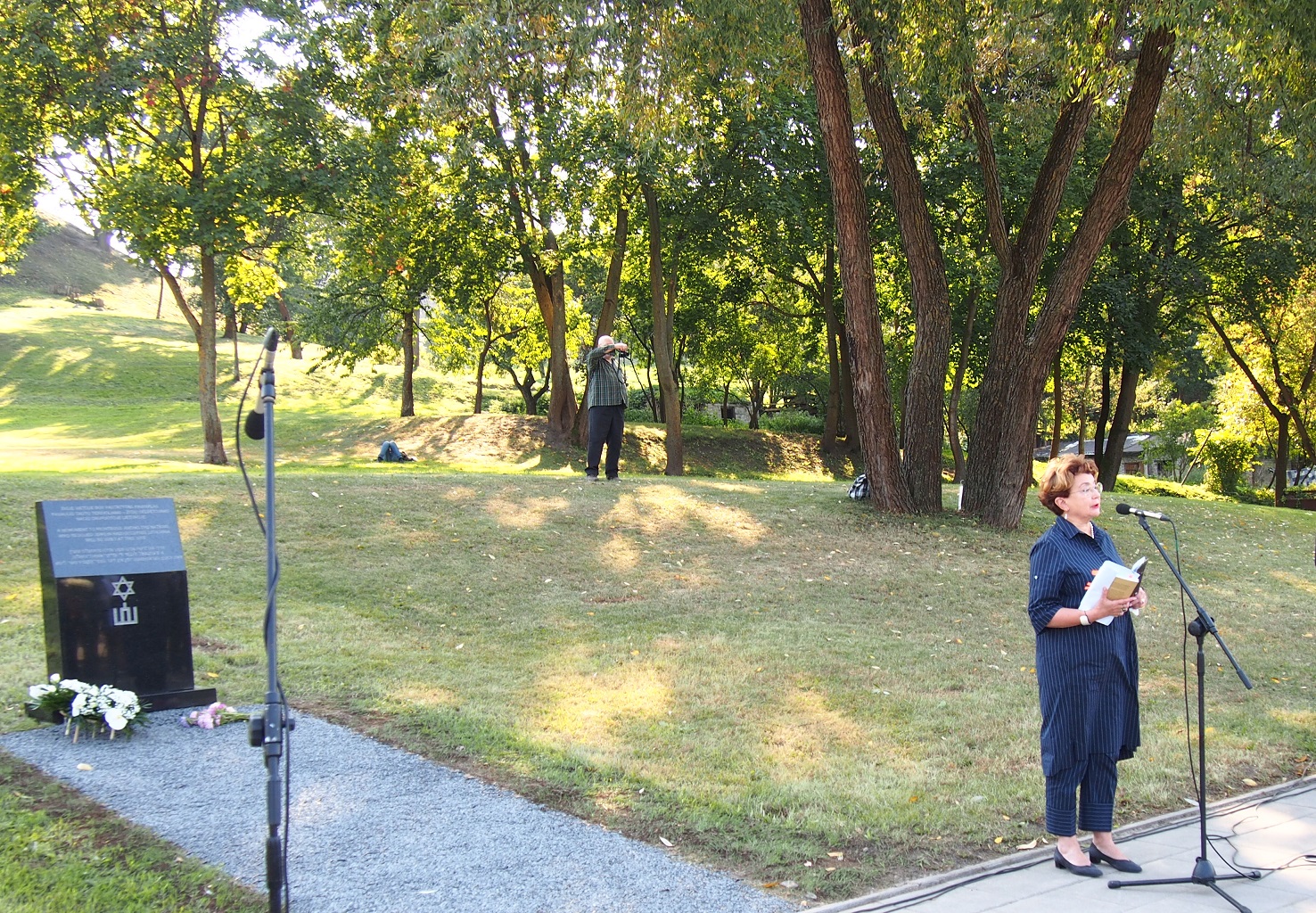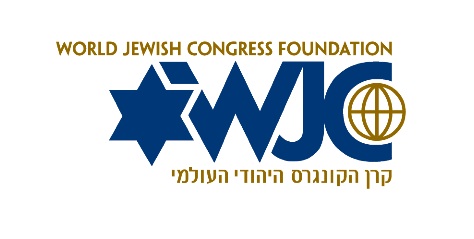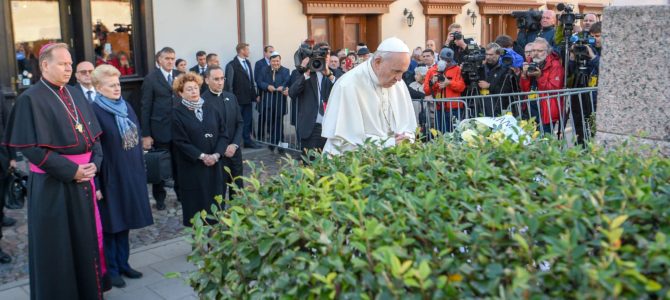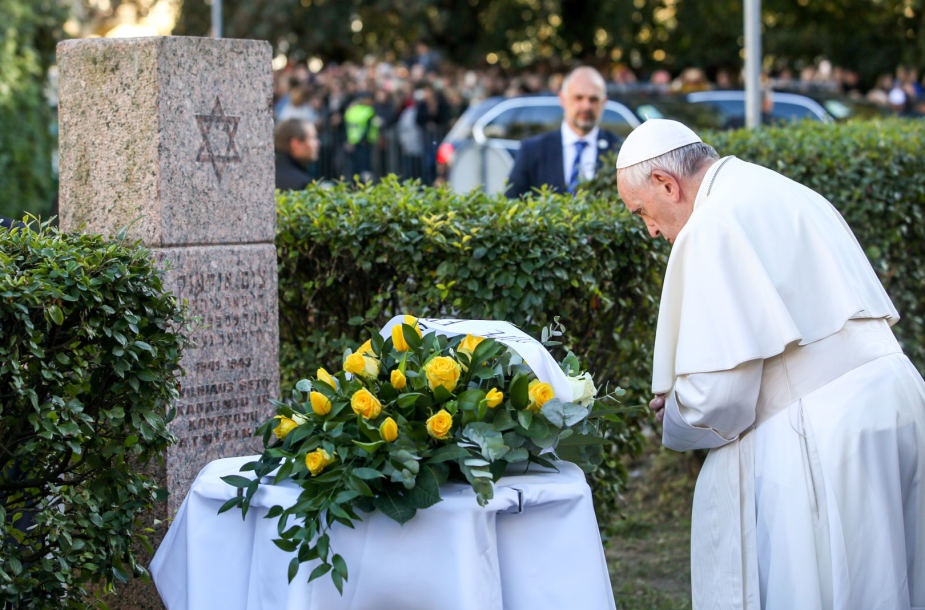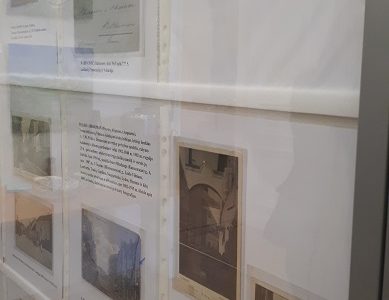
The third floor of the Lithuanian Jewish Community is now hosting an exhibit of documents to commemorate the 75th anniversary of the final destruction of the Vilnius ghetto. All of the documents relate to Vilnius and the people of the city, including Rabbi Chaim Ozer Grodzinski, Dr. Tsemakh Shabad, banker Israel Bunimovich, the businessman Isak Shuman and others. The documents are from around the world with the majority from Germany, the USA and Israel.
One interesting document appears in the first display case at the new exhibit. It carries the inscription in Russia “Proyekt ustava dukhovnogo obschestva Vilniuskoy sinagogi” and the date 1888. It was acquired in Israel and comes from the collection of Leizer Ran, a well-known collector of Judaica.
There are many photographs from various angles of the Great Synagogue and the Choral Synagogue.
Document collector Michailis Duškesas says he began collecting pre-Holocaust Lithuanian Jewish documents about 15 years ago, and began collecting stamps since about 1980. He has an extensive stamp collection from around the world featuring the game of ping pong. He says he’s constantly enlarging his Judaica collection and now has a great number of documents concerning Lithuanian cities and towns where Jews lived. His documents have been exhibited before at the Lithuanian parliament, the National M. K. Čiurlionis Art Museum and the Lithuanian Historical Presidential Palace in Kaunas. He says they have also been used in documentary films about Jewish life in Lithuania before the Holocaust.


